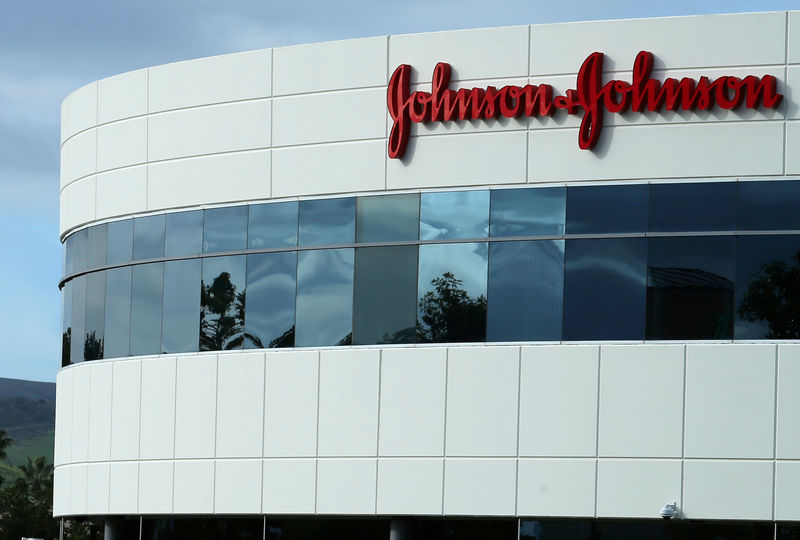By Tamara Mathias
(Reuters) - Johnson & Johnson (N:JNJ) shares were off more than 2% on Wednesday, a day after a U.S. jury said it must pay $8 billion (6.6 billion pounds) in punitive damages to a plaintiff in a case involving its anti-psychotic drug Risperdal, a penalty the company and others are confident will not stand.
The jury in a Philadelphia court awarded the $8 billion to a man who previously won $680,000 over his claims that it failed to warn that young men using Risperdal could grow breasts.
J&J called the sum "grossly disproportionate with the initial compensatory award" and said it was confident it would be overturned.
The company has legal precedent on its side.
A 2003 U.S. Supreme Court decision found that "few awards exceeding a single-digit ratio between punitive and compensatory damages, to a significant degree, will satisfy due process." By that measure, the punitive damages should be more in the neighbourhood of $6 million.
Gary Bradshaw, portfolio manager for the Hodges Blue Chip Equity Income fund, said he expects the total damages that J&J will pay to be “drastically reduced” on appeal.
“There's certainly a cloud overhanging the stock, but what keeps me owning J&J and not walking away is that they’ve got tremendous earnings power,” Bradshaw said.
Bradshaw, a long-time holder of J&J shares, expects the company to earn up to $10 per share in 2021, giving it a likely share price of $170.
J&J shares were off 2.3% at $128.75 in Wednesday afternoon trading.
Among the clouds hanging over the U.S. healthcare conglomerate are thousands of lawsuits involving Risperdal, baby powder, opioids, medical devices and other products.
"Every pharmaceutical company needs to seriously consider if they want to litigate to verdict in the present environment, but with the settlement demands so incredibly high it's not always clear what their alternative is," said Barry Thompson, a partner at Baker McKenzie law firm who was not involved in the case.
J&J did not have an immediate comment on its legal strategy.
According to a recent filing, J&J faces some 13,400 lawsuits tied to Risperdal, which allege the drug caused a condition called gynecomastia in boys, in which breast tissue becomes enlarged.
Johnson & Johnson paid more than $2.2 billion in 2013 to resolve civil and criminal investigations by the U.S. Department of Justice into its marketing of Risperdal and other drugs.
Earlier this month, the company agreed to pay $20.4 million to settle claims by two Ohio counties, avoiding a federal opioid trial.

An Oklahoma judge in August ordered J&J to pay $572.1 million to that state for its part in fuelling the opioid crisis by deceptively marketing addictive painkillers, a sum that was substantially less than investors had expected.